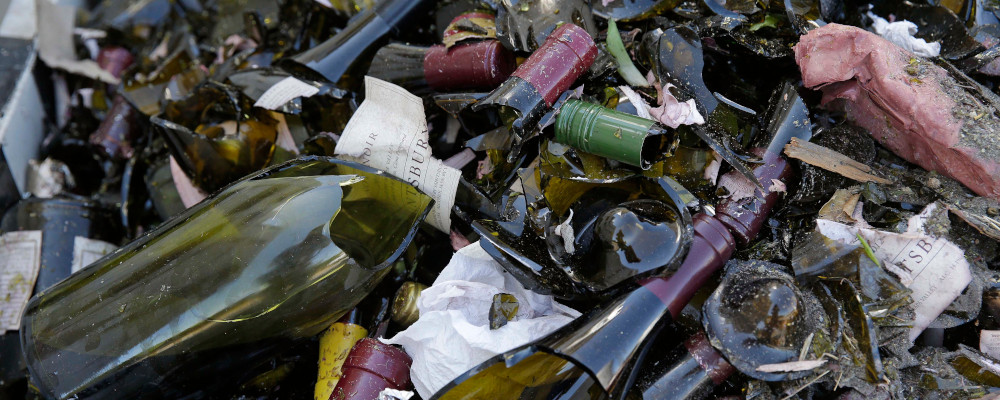Levi Dalton worked as a sommelier for three of New York City’s top chefs: Michael White, Masa Takayama, and Daniel Boulud. In their respective hallowed halls of gastronomy, Levi would have poured wines luxurious, esoteric, and rare. And he would have poured them not just for the rich and famous but also for the epicurean elite: the world’s famous chefs and, maybe more importantly, the world’s most respected winemakers.
If Dalton found respect for those winemakers then I am sure it was mutual. I know this from the one time I met him. It was a few years ago in a subterranean restaurant in the Piedmontese wine city of Alba. It was the welcome dinner for the press delegation to Nebbiolo Prima, the annual release of the red wines made from that grape in Barolo, Barbaresco, and Roero.
I was discombobulated from an overnight flight to Germany and a day’s journey via Milan to the Langhe hills. I assumed the tall dark-haired man seated next to me was a local producer because I had seen him talk to a number of the ones who began pouring their wines. But he introduced himself as a sommelier for New York and mentioned he had a podcast.
I was grateful to have my new friend as a seatmate. I hadn’t studied my itinerary very carefully and was surprised that the wines we were tasting and enjoying through dinner weren’t the Nebbiolo we would be tasting all week. What was in my glass was Verduno Pelaverga DOC, a rare, lighter red wine made from a grape that was nearly made extinct as its vines were pulled out to make way for commercially successful Nebbiolo and Barbera.
While I knew nothing, Dalton knew much about Pelaverga. Not only did he give me a concise history of the grape, he knew most of the producers and labels and could comment on each one. As producers rotated around our table with each course, he asked them interesting questions about the vintage and how each was made. He also explained that Pelaverga was enjoying a kind of moment in the New York sommelier scene.
I felt lucky and cool to have met Dalton. Still, I spent the rest of the week immersed in tasting and other events and I didn’t think much of our meeting until another wine writer I follow recommended his podcast, I’ll Drink To That, and I realized the host was the Pelaverga guy. He has been producing a podcast since 2012. And the show, running for more than an hour, was compelling and informative, just like the dinner before. I was instantly hooked.
The only trouble with Dalton’s podcast is that a subscription requires patience. Although he has made nearly 500 episodes, they sometimes come slowly. This is not just because they are long and well-edited and produced, but I think also because they are extremely well-researched. When Dalton interviews a winemaker, he’ll probe with questions, often about specific events, from the entire breadth of the producer’s career.
The latest episode features an interview with Robert Drouhin, the 90-year-old patriarch and head winemaker of Maison Joseph Drouhin from 1957 to 2003. Joseph Drouhin established the renowned Burgundy house in 1880 and his son Maurice took control of the grower-merchant business in 1918. By the time Robert took over in the late ’50s, he was steeped in the institutional knowledge of two generations.
The well of knowledge from which Dalton draws in the interview is deep. And rich. Drouhin’s tenure in Burgundy coincided with the modernization of the wine industry there and around the world. He tells Dalton that until well after the Second World War the family’s holdings were limited to the immediate area around their cellars in Beaune because that was as far as they could take their horses to work the vineyards. Only once the vignerons acquired tractors could they manage plots throughout the region.
Drouhin’s tenure in Burgundy also coincided with the rise in the profession of enology and the scientific study of the process of making wine. When he started, the cellar manager was a cooper, and the management of the company’s barrels was a key priority. With the arrival of the professionals came new technology, like temperature-controlled fermentation, which allowed for consistency and quality control from year to year.
Additionally, Drouhin’s tenure coincided with the internationalization of the wine trade and the exponential growth, in particular, of the American consumer market. Drouhin kept his eye on what was happening in the U.S. and made friends with California’s modern wine pioneer, Robert Mondavi, among others. Eventually, in the 1980s he would establish Domaine Drouhin Oregon in Willamette Valley.

Dalton’s podcast with Drouhin was been at the forefront of my mind in the last few weeks. Not just because it’s entertaining—Drouhin is a charming and eloquent guest—but because the news of the wine world coming into 2024 is grim.
A recent report estimates that Australia currently has 875 Olympic swimming pools worth of wine in storage, with no foreseeable buyers and the 2024 Southern Hemisphere harvest looming. Another reports Champagne sales are in decline, even in France. At my local provincial retailer, I see an increasing number of bottles marked down, especially in the $20 to $30 range, typically made by smaller family businesses. Things look rough and some things are bound to change.
Dalton’s work, and Drouhin’s career, offer hope. They show that despite all the marketing appeals to tradition, the wine industry is remarkably adept at change. Trends come and go. And so does technology and new techniques. As Drouhin says in the interview, “Innovation that works becomes tradition.”
After all, the vigneron must adapt to the changing weather and pest conditions of each growing year, and the caviste to the unpredictable process of fermentation. How the world of wine changes and evolves in the next quarter of the 21st century should be a good story. Stay tuned.
Recommended for You

Malcolm Jolley: The comfort of familiar favourites—or the fun of finding new wines?

Malcolm Jolley: An ‘Elbows Up’ wine project everyone can get behind

Malcolm Jolley: Need some summer wines? Look no further than the food-friendly, low-sugar sippers of the sunny Southern Rhône

Malcolm Jolley: Need a date-night drink? French Northern Rhône wines are worth the investment




